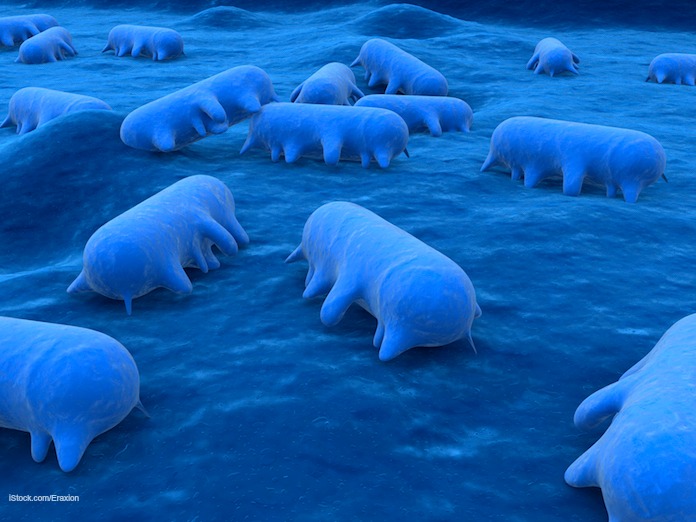Research at Cornell University has found that Salmonella food poisoning caused by some serotypes of the pathogenic bacteria could permanently damage your DNA. The study is published in the journal mBio by the American Society for Microbiology as “The Cytolethal Distending Toxin Produced by Nontyphoidal Salmonella Serotypes Javiana, Montevideo, Oranienburg, and Mississippi Induces DNA Damage in a Manner Similar to That of Serotype Typhi.” Dr. Rachel Miller, author of the study, said, “not all Salmonella serotypes are equal.”

There are more than 2,500 serotypes for Salmonella, but fewer than 100 of those cause most of the food poisoning cases in this country, according to the CDC. Salmonella causes about 1.2 million illnesses every year in the U.S., and kills about 450 people.
Miller and Dr. Martin Wiedmann, the Gellert Family Professor in Food Safety at the University, looked at many serotypes of Salmonella that encode for cytolethal distending toxin, or S-CDT, a virulence component for serotype Typhi. While Salmonella typhi causes typhoid fever, the other serotypes Javiana, Montevideo, Oranienburg, and Mississippi also carry the genetic material that encodes that toxin.
We have seen outbreaks linked to these serotypes in the United States just in the past year. In August 2016, a Salmonella Javiana outbreak at Pappadeaux Seafood Kitchen in Phoenix, Arizona sickened at least 40 people. The outbreak strain of bacteria was founding prepped/repackaged shrimp at the restaurant. Also in 2016, a Salmonella Oranienburg outbreak that sickened at least eight people was found in shell eggs produced by the Good Earth Egg Company of Bonne Terre, Missouri. And in early 2016, a Salmonella Montevideo outbreak linked to Wonderful Pistachios sickened at least 11 people.
Salmonella bacteria with S-CDT led hallmark signatures that show the presence of DNA damage. That could contribute to “long-term disease consequences,” according to Miller.
Miller continued, “Think about possible DNA damage this way: We apply sunscreen to keep the sun from damaging our skin. If you don’t apply sunscreen, you can get a sunburn – and possibly develop skin problems later in life. While not the sun, salmonella bacteria may work in a similar way. The more you expose your body’s cells to DNA damage, the more DNA damage that needs to be repaired, and there may one day be a chance that the DNA damage is not correctly repaired. We don’t really know right now the true permanent damage from these salmonella infections.”




